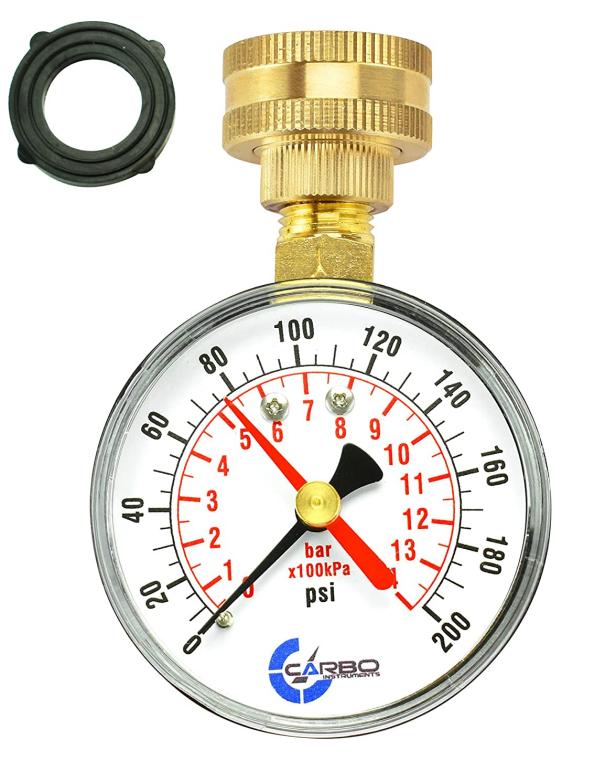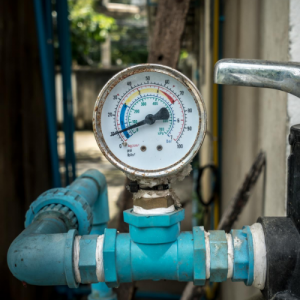Highly-Rated Approaches for Addressing Low Water Pressure in Your Home
Highly-Rated Approaches for Addressing Low Water Pressure in Your Home
Blog Article
Presented here on the next paragraphs you can find more very good tips regarding 4 Ways to Troubleshoot Low Water Pressure.

Low water pressure in your home can be a discouraging issue, influencing whatever from showering to washing dishes. If you're experiencing weak water circulation, there are a number of feasible causes and solutions to discover. In this guide, we'll talk about usual factors for low water stress and useful steps to deal with the issue effectively.
Intro to Low Tide Stress
Low water pressure happens when the flow of water from your faucets, showers, and other fixtures is weak than normal. This can make day-to-day jobs much more difficult and much less reliable. Understanding the root causes of low water stress is crucial to finding the best option.
Typical Reasons For Low Tide Pressure
Faulty Pressure Regulatory Authorities
Pressure regulators are responsible for maintaining constant water pressure in your home. If they malfunction, it can result in low water stress or irregular flow throughout the house.
Municipal Supply Of Water Issues
Occasionally, the issue exists outside your home. Community water system concerns, such as main line leaks or upkeep work, can briefly lower water pressure in your area.
Pipe Obstructions
In time, pipelines can come to be clogged with natural resource, debris, or debris, restricting the circulation of water. This is a common concern in older homes with galvanized steel pipes.
Corrosion
Rust within pipes can result in leakages and minimized water pressure. Rust accumulation can constrict water circulation, specifically in maturing plumbing systems.
Exactly How to Identify Low Tide Stress
Checking Pipelines
Evaluate noticeable pipelines for signs of leaks, deterioration, or clogs. Pay attention to any kind of uncommon noises, such as banging or rattling pipelines, which might show problems within the plumbing system.
Consulting with a Plumber
If you're unable to identify the root cause of low water pressure, consider hiring an expert plumber to conduct a thorough inspection. They can identify underlying concerns and recommend proper options.
Examining Faucets and Components
Start by evaluating the water pressure at different taps and components throughout your home. If the concern is isolated to certain areas, it might show localized problems.
Do It Yourself Solutions to Take Care Of Low Water Pressure
Flushing Hot Water Heater
Debris accumulation in the water heater can restrict flow and reduce efficiency. Flushing the tank regularly aids eliminate sediment and keep ideal efficiency.
Inspecting Pressure Regulatory Authority
Guarantee that the stress regulator is working properly. Adjusting or replacing the regulator can aid recover appropriate water stress throughout your home.
Cleansing Aerators and Showerheads
Natural resources can collect in aerators and showerheads, minimizing water circulation. Remove and clean these elements consistently to improve water stress.
Cleaning Clogs in Pipeline
For small obstructions, try utilizing a plumbing serpent or chemical drain cleaner to clear blockages in pipes. Be cautious when making use of chemicals and comply with safety and security guidelines.
When to Call a Specialist Plumber
If DIY initiatives fail to fix the problem or if you suspect considerable plumbing issues, it's best to look for assistance from a certified plumber. They have the expertise and tools to deal with complex issues securely and efficiently.
Safety Nets to Maintain Water Pressure
Setting Up a Stress Booster
Consider mounting a pressure booster pump to boost water stress in locations with regularly low flow. This can be especially valuable for multi-story homes or properties with high-demand fixtures.
Tracking Water Use
Bear in mind water use habits and stay clear of ill-using the plumbing system. Basic adjustments, such as staggering showers and laundry lots, can help keep appropriate water pressure.
Normal Upkeep
Set up routine upkeep for your plumbing system to prevent problems such as deterioration, leaks, and blockages. Dealing with minor issues early can assist avoid more considerable fixings later.
Conclusion
Managing low water stress can be aggravating, however identifying the underlying reasons and carrying out suitable solutions can recover ideal flow throughout your home. Whether it's cleaning up aerators, checking pipelines, or consulting with a plumber, taking proactive steps can guarantee a stable supply of water for your everyday demands.
HOW TO FIX LOW WATER PRESSURE IN YOUR HOUSE (EXPERT GUIDE)
The morning shower lacking any real pressure? Bathtub taking hours to fill? Or maybe you’re dissatisfied with the inadequate performance from your combi boiler?
Then you, like millions of others across the UK, might be experiencing low water pressure.
Fortunately, the good news is that you don’t have to continue living this way. The cause of low water pressure in the home is often quite simple, and you may not even require a plumber to fix the problem.
What causes low water pressure in the house?
If you are experiencing issues with water pressure throughout your home, then you may have one of the problems outlined below.
Most of these problems can be fixed quite easily, but for others, you may need to contact a plumber.
Obstructed Shutoff Valve
If you’ve just bought a new home or recently had building work conducted on your property, there is a chance that your water valves were not fully opened.
If the water valve is partially closed, then you may be restricting the amount of water entering your home. To fix this, simply ensure the valve is fully open.
If the valve appears fully open but you are still encountering reduced water pressure, then the valve may be broken. If this is the case, do not under any circumstances try to fix it without proper training.
Often found under your kitchen sink, a water valve will usually look like a bright yellow handle.
Again, if you believe the water valve is broken, contact a plumber immediately.
Leaks in Your Water Pipes
Leaks are the worst-case scenario when it comes to low water pressure.
If the water pipes are damaged, then this will cause low water pressure, as not all the water will make it to your taps.
After you’ve checked to see if the valve is fully open, you can conduct a leak check of your home. Now, this may seem scary, but it is actually quite simple.
Clogged Water Pipes
Clogged water pipes are one of the most common causes of low water pressure.
These clogs usually build-up when your home is supplied water via iron pipes. Iron is particularly vulnerable to rusting which can then break off and cause an obstruction within your system. You also face the problem of things like dirt, gravel or sand entering creating mineral deposits which further block water flowing from the mains water supply.
Unfortunately, if you suspect that clogged pipes may be restricting your water supply, then you will need to contact a plumber.
In this situation, you will either need to have your pipes removed and cleaned or in more severe cases, you could require a new set of water pipes.
Designer Taps
Designer taps look fantastic, but are they built to be efficient in your plumbing system? Modern taps are built for modern homes and they often have lower flow rates that are specifically designed for use within high-pressure systems.
Install a Water Pressure Booster Pump
If the issue is simply that the mains water pressure supply is too low, the simplest fix is to invest in a booster pump. Found in homes of all shapes and sizes, booster pumps are a relatively cheap option to add extra pressure to your home.
Designed to increase water pressure by passing water into the pump from your mains supply and then ejecting it into your home water system at a higher pressure, a booster pump is a truly simple and effective solution to increasing water pressure.
https://www.anchorpumps.com/blog/the-plumbers-guide-to-fixing-low-water-pressure/

Do you like reading about 9 Reasons for Low Water Pressure in Your House? Place feedback directly below. We would be pleased to know your views about this blog entry. We hope that you come back again in the future. I beg you take a moment to promote this entry if you appreciated it. I am grateful for being here. Please visit our website back soon.
Book Inspection Report this page